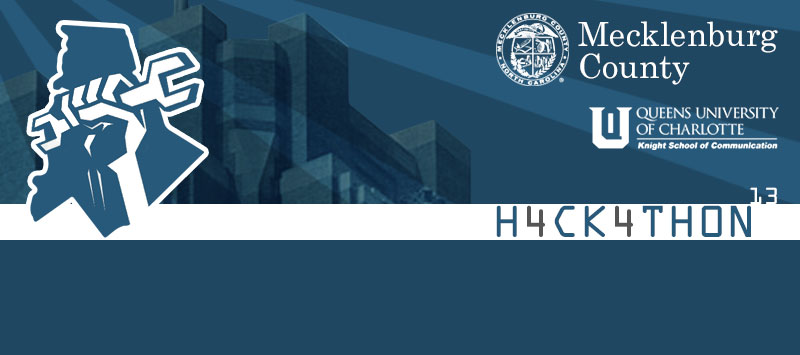For the first time in its history, Mecklenburg County government is organizing a regional hackathon to provide programmers and digital storytellers with resources to transform publicly available datasets into useful tools for citizens.
The hackathon will focus on new ways to introduce county resources to newcomers and citizens, relying on open datasets that include historic districts, hospitals, schools, recycling centers, greenways, wetlands, parks, neighborhoods and other assets.
The county is partnering on the hackathon with the Knight School of Communication at Queens to engage community partners and build on university resources. The project will conclude with demonstrations by winning teams at the county’s annual GIS day on Nov. 20, an event designed to showcase real-world mapping applications created with geographic information systems technology.
“We have one very large dataset that we’ll be making available,” says Jessica Davis, web services manager for Mecklenburg County and one of the event’s organizers. “Some of the data came from a project we did with the City of Charlotte called the Quality of Life Study.… What we’d like to do is for hacking teams to go into this dataset, look at everything that we’ve provided, and from that parse out what they think are the best highlights.”
Dr. Eric Freedman, dean of the Knight School of Communication, says the project shows how citizens now have access to data that was previously difficult to access, and can use that access to redefine the way they interact with governments and communities.
“Governments all over the world are using online technologies to open up their databases,” Freedman says. “Mecklenburg County recognizes that this data belongs to the people who live here, who have terrific ideas about ways to shape it into tools that improve their lives, and who welcome any opportunity to contribute to the local information ecosystem.”
Unlike other hackathons, which confine project development into a time period of 24 to 48 hours, the Mecklenburg County hackathon will give teams two weeks to work with data and prepare applications and prototypes. Registration is available on the county’s Hackathon 13 website.
Hacker teams can include people from various backgrounds, including programmers, journalists, engineers, media producers, urban planners, entrepreneurs, social workers, environmentalists, and those from other fields. Winners will receive prizes and recognition. The teams can include up to five members, and can originate from single or multiple organizations, including schools, businesses, non-profit organizations, or local interest groups.
